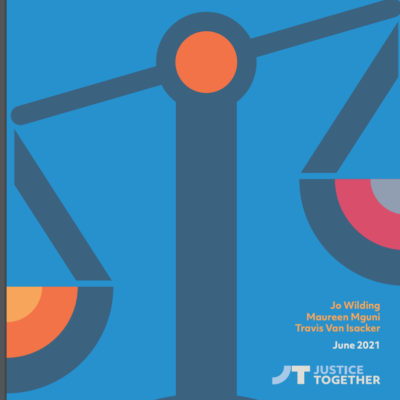Anyone who is trying to stand in solidarity with refugees in London knows the acute difficulty they face in securing the legal advice and representation that they need to resolve their immigration status and to rebuild their lives. A new report ‘A Huge Gulf – Demand and Supply for Immigration legal Advice in London’ – commissioned by the Justice Together Initiative and Paul Hamlyn Foundation, and funded by a coalition of charitable funds – comprehensively details the scope of the problem, and puts forward practical steps that could be taken to mitigate it.
The “gulf” is not simply for refugees, but for all migrants. It’s driven not just by lack of funding, but also by the immigration rules that drive up the need for representation; making routes to resolving immigration status and settlement inaccessible, and stacking up more pointless work for Home Office staff who are already failing to process existing applications.
We often think that London is better served for advice and legal representation than the rest of the country but the report’s figures are stark; capacity in the sector in London for, at most, 10,000 cases a year for asylum work and 7000 for cases that fall outside legal aid. Set this against 5,500 new asylum cases, and 18,500 households needing to renew existing leave. But more than that, there are close to 400,000 undocumented people, including the appeal rights exhausted asylum seekers that JRS support, in the capital. That does not, yet, include EU nationals who will need support applying for settled status, or domestic violence victims and those in immigration detention.
Alongside the scale of the need, the authors identify issues around recruitment and training for legal reps, the inefficiency of legal aid funding, the need for casework (providing representation to resolve cases) in contrast to simply more diagnostic “advice” and a need for wider community legal literacy to foster the development of, and access to, quality advice.
Often similar reports around access to advice and representation have looked to “networking” or “triaging” as the answers to capacity issues. Refreshingly, the conclusions highlight that while both may be desirable and effective they require substantial resourcing on top of the need to resource the casework capacity itself.
The authors do not shy away from identifying the systemic issues in the immigration system that builds in delay, poverty and forces people into overstaying. At a time when the Home Secretary is all too keen to vilify anyone who works for justice, it is fitting that the authors point out how so much needless work is made up by her own department.
JRS UK welcome the publication of the report. It demonstrates the arguments that underpinned the establishment of our own legal project and reflects many of the lessons we have learned over the past two years.
Our project cannot, and should not, hope to replace the gaps left by government provision but at the same time in practice we have learned that we are sometimes best placed to take on cases and resolve the immigration status of some of our refugee friends. We have learned about how embedding our project in the wider service and values of JRS we have been able to build trust with many who have been unable to engage with legal provision for many years. We have started to work well with some quality legal aid providers to maximise their capacity and to be more than a referral pathway by continuing practical support, regardless of whether we are providing legal representation.
Working with our refugee friends, we have developed practical clear legal information sessions to demystify the systems that refugees and those who support them face every day. Across JRS we now have more OISC accredited staff at all levels, and I think we can be proud that we have brought some new enthusiasm and expertise into a sector that had been decimated over the past 10 years. Beyond all this, we are only too well aware of the need for fundamental change to the hostile environment for refugees and migrants, and the systems that only serve to divide and damage our society further.
The legal project was set up with the generous help of JRS supporters and we have not had support from the major charities. Despite working to specialist level, our work is not funded by the legal aid agency and we therefore remain able to run the project in a way that works for our refugee friends and sits firmly within JRS’s mission.
Michael Tarnoky is Senior Legal Officer at JRS UK
The vital work of the JRS Legal Project relies on your generous donations.
Donate now and help us continue the Legal Project



